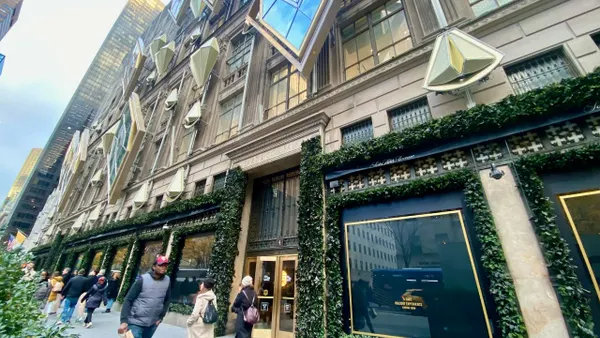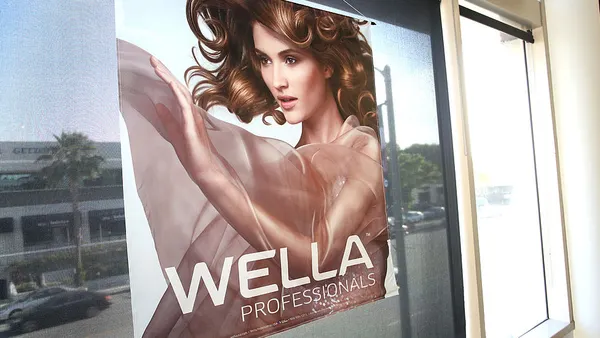Dive Brief:
-
Prada on Wednesday announced that Chicago artist and activist Theaster Gates and award-winning Hollywood writer, director and producer Ava DuVernay will co-chair its new Prada Diversity and Inclusion Advisory Council, according to a company press release.
-
The council will advise the Italian fashion house and the fashion industry at large on how to expand opportunities for people of color, including through the development of internships, apprenticeships, scholarships and training programs, in the U.S. and globally.
-
The goal will be to reform Prada internally as well as the fashion industry more widely. The establishment of the group follows a series of problematic releases in fashion over the years from companies as diverse as, among others, fast-fashion retailer H&M, Gucci, Dolce & Gabbana, Adidas and Prada itself, which last year displayed products in the windows of a New York City store that Washington Post fashion critic Robin Givhan called "unequivocally racist."
Dive Insight:
A common question that arises whenever a retailer markets items that much of the world recognizes as racist or otherwise appalling is how such blatantly problematic designs could make it through a process that presumably entails several rounds of approval.
The answer is both that bigotry runs deep, and that there aren't enough people of color involved in such processes. "'[B]lackface caricatures' and images espoused by the fashion design brands like Prada and Gucci highlight the deeply rooted racist imagery displayed as 'creative fashion' which reflects the design and merchandising teams' ignorance, indifference and/or bigotry as a result of their lack of meaningful racial diversity within the executive ranks," said Shawn Grain Carter, professor of fashion business management at The Fashion Institute of Technology, who developed a course at F.I.T. that focuses on the "triple bottom line of people, planet, and profit" that addresses such issues.
Prada's move to develop its new Diversity and Inclusion Advisory Council is a recognition of that problem, Carter told Retail Dive by email.
"Holding all stakeholders accountable, including consumers, stylists, designers, merchandisers, buyers and manufacturers within the fashion community to hire, promote and retain Black executives on these teams will hopefully eliminate this sad commentary of racial discrimination within the fashion supply chain," she said.
Brands tend to swiftly suffer backlash after releases like Gucci's blackface turtleneck sweater and Prada's window displays, yet such designs continue to be designed, marketed and sold. In recent days director Spike Lee and rapper T.I. said they are boycotting both brands until they make meaningful change. Lee posted on Instagram that "It's Obvious ... That They Don't Have A Clue When It Comes To Racist, Blackface Hateful Imagery. WAKE UP."
The new Prada group has hired two forces in art who have already undertook the kind of systemic change the couture house appears to be after. Gates is a Chicago artist and activist with a track record of creative and organizational work — what he called, in an interview with the New York Times magazine, the creation of "a kind of ecology of opportunity." DuVernay, meanwhile, is the director of the Oscar-winning historical drama, "Selma," the Oscar-nominated criminal justice documentary, "13th" and Disney's "A Wrinkle in Time," which made her the highest grossing African-American female director in domestic box office history, according to the release.
It's a step forward, but the industry still has much to prove, Carter says. "A Diversity Council is a start. However, sustainable change and accountability requires a strong commitment of hiring and promoting Blacks at every executive level within the fashion industry," she said.














